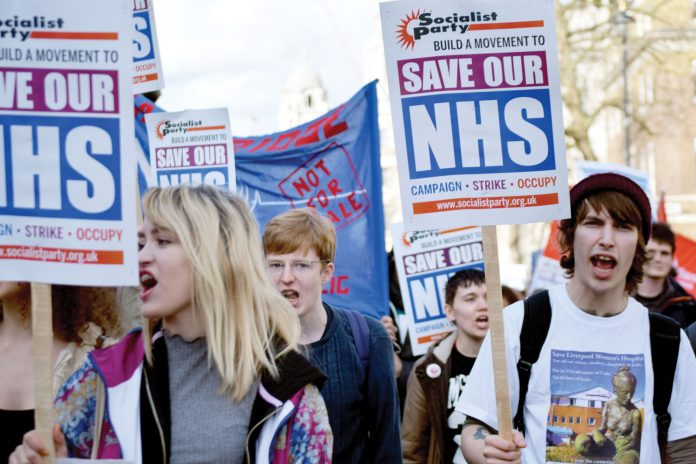NHS Wales nurse
There’s been around 18 months of ‘normal’ working situations since the worst of Covid. But things will never be normal for some of us. As with everything, the things done as favours inevitably become an expectation. Treatments usually reserved for high dependency units are now routinely managed on the wards. We have no more staff than we had; fewer if anything. Again though, with resolve and solidarity, we keep going.
If the pandemic didn’t do enough to show the country that the NHS is struggling, there is again an unprecedented ‘new normal’ being expected of the service.
In the past six months there has been the expectation that the wards now accommodate an extra bed. A four- or six-bedded bay is now expected to take a fifth or seventh bed. The beds, referred to as ‘boarding’, are placed into either a bay window, recess, or even doorways, despite there being no electrical sockets, oxygen ports, curtains, light, nurse or emergency bells. And no dignity.
Objections and complaints are made, but the transfer of patients happens regardless. Senior staff state that patients are assessed as to their ‘suitability to be boarded,’ but bedbound, incontinent, and vulnerable people still find themselves in these beds. Worse still, they are so tired and unwell that they are ‘just glad of a bed,’ not understanding the gravity of the poor situation they are in.
Severe lack of social care means inability to safely discharge patients from hospital. Hospital beds are blocked, accident and emergency departments fill beyond capacity, ambulances are unable to offload their patients so remain in car parks. Trolleys and beds are added to corridors and any available area to share the ever-mounting pressures at the door. Emergency departments designed to manage 60 patients routinely have 100.
Do patients know we are turning storerooms into extra capacity? Even if the door cannot close around the trolley that has been slotted in?
Unsafe staffing
Stress and burnout is at an all-time high. Newly qualified staff review their career prospects after only two years of work. Experienced staff shouldering too much for too long are worn out. Recruitment is at an all-time low.
Staff retention will remain an issue until there are pay increases to appropriately reflect responsibilities and skills demonstrated by staff. Real-terms pay cuts over ten-plus successive years, austerity and a cost-of-living crisis mean there are nursing staff across the country who work full time and qualify for state financial assistance, while also having to pay back their student loans.
Invest in our NHS
Is the money wasted on PPE contracts unrecoverable? Recovering the millions lost to nepotistic contracts should be a priority and immediately reinvested so that the staff can maintain the provision of high-quality, safe and timely delivered care to everyone. None of us joined our varied careers in the NHS to feel like we struggled to provide a kind, caring and effective service at the end of the day.
Staff working at the hospital are likely to be residents of nearby towns and villages and will also be reliant upon the services of the same hospitals in their own times of illness. Their families will be admitted to the same wards. There is a sense of responsibility to ensure the care provided is the care we also would want and expect for our own. It’s increasingly difficult to provide a service you would yourself like to receive when you often have more than ten patients to care for each day.
The weight of this noble ideal gets heavier when the government won’t appropriately staff and fund the service. Even the most principled nurse cannot do three people’s jobs indefinitely without reconsidering their position. Do we make ourselves ill for an unappreciated and unrecognised principle? The goodwill that has floated the service for far too long is wearing much too thin. Is the value of the NHS entirely lost to those in government?
The NHS is the jewel in the UK’s crown. Not the Monarchy, and certainly not the government. We must not allow the soap opera of UK politics to dampen our resolve or wear us down to indifference. The NHS is struggling, but Nye Bevan was right – it will remain here if there are folk enough to fight for it. Please fight for it, it’s a fight for us all.
To read part one see ‘NHS frontline: Covid battles echo, we are still fighting’







